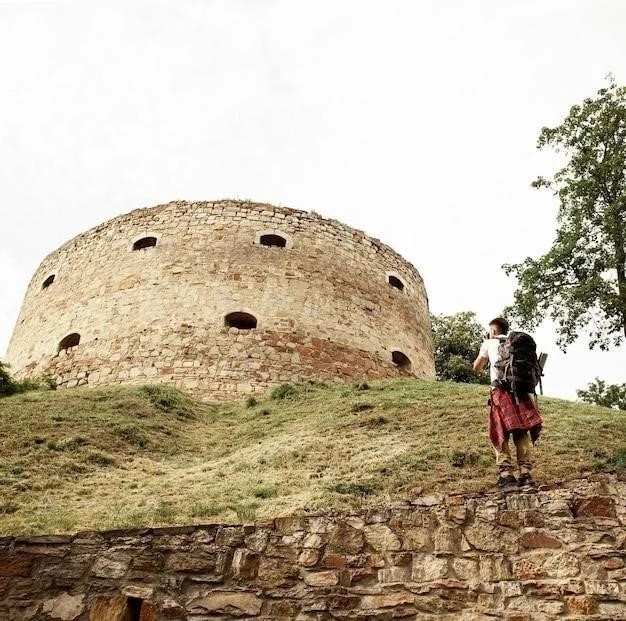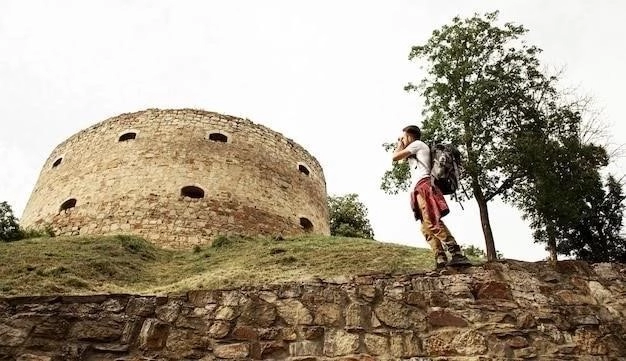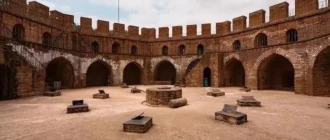The Legacy of Kingstown’s Founding
Kingstown’s legacy is intricately woven with the threads of its founding. The echoes of those early days reverberate through the town’s present, shaping its identity and character.

Early Settlements and Colonial Influence
The annals of Kingstown’s history reach back to the early days of colonial settlement, a period marked by the interplay of ambition, opportunity, and the inexorable forces of history. The first intrepid souls to make Kingstown their home were drawn by the allure of fertile land and the promise of a new life. These early settlers, primarily farmers and fishermen, established a modest but vibrant community on the shores of Narragansett Bay. Their lives were inextricably linked to the rhythms of the land and sea, their days punctuated by the demands of agriculture and the bounty of the bay.
The colonial era cast a long shadow over Kingstown, shaping its development and leaving an enduring legacy. As the British Empire expanded its reach across the North American continent, Kingstown found itself increasingly drawn into the orbit of the colonial administration. The town’s strategic location on Narragansett Bay, a vital waterway for trade and commerce, made it a prize to be coveted and controlled. British influence manifested itself in various facets of life in Kingstown, from the establishment of local government and the imposition of taxes to the adoption of British customs and traditions.
The colonial period also witnessed the arrival of enslaved Africans, forcibly transported across the Atlantic to labor on the farms and plantations that fueled the colonial economy. The legacy of slavery in Kingstown is complex and multifaceted, marked by both the brutality of forced labor and the resilience of the African diaspora. The contributions of enslaved Africans to the town’s development, though often overlooked, were significant and enduring, shaping its cultural landscape and leaving an indelible mark on its history. Understanding the nuances of Kingstown’s colonial past, from the aspirations of its early settlers to the enduring legacy of slavery, is essential to comprehending the tapestry of its present-day identity.

Kingstown’s Role in the Revolutionary War
As tensions escalated between Great Britain and its American colonies in the late 18th century, Kingstown found itself swept up in the currents of revolution. The town’s inhabitants, deeply imbued with the principles of liberty and self-determination, embraced the cause of independence with fervor and resolve. Kingstown became a hotbed of Patriot sentiment, a place where the flames of rebellion burned brightly.
When the Revolutionary War erupted in 1775, Kingstown’s citizens answered the call to arms with unwavering determination. Many men from the town joined the ranks of the Continental Army, leaving behind their families and livelihoods to fight for the cause of freedom. Kingstown’s strategic location on Narragansett Bay made it a target for British naval forces, and the town endured its share of hardship and sacrifice during the war. British ships blockaded the harbor, disrupting trade and commerce, while raids and skirmishes became a constant threat.
Despite the hardships they faced, Kingstown’s inhabitants remained steadfast in their commitment to the Patriot cause. The town’s women played a vital role in the war effort, providing food, clothing, and medical supplies to the troops. They also took on the responsibilities of managing farms and businesses while their husbands, fathers, and sons were away fighting. The Revolutionary War left an enduring legacy on Kingstown, shaping its identity and forging a strong tradition of patriotism and civic engagement.

19th Century Growth and Development
The 19th century ushered in an era of unprecedented growth and transformation for Kingstown. The nascent United States, newly independent and eager to establish itself as a global power, underwent a period of rapid industrialization and expansion. Kingstown, strategically situated on the Atlantic coast, found itself at the forefront of these sweeping changes.
The advent of the Industrial Revolution brought new industries and technologies to Kingstown, transforming its economy and social fabric. Textile mills, powered by the region’s abundant waterways, sprang up along the banks of rivers and streams. These mills, employing hundreds of workers, became the backbone of Kingstown’s economy, drawing people from rural areas and fueling the growth of the town’s population. Alongside the textile industry, other manufacturing enterprises, such as shipbuilding and ironworking, flourished in Kingstown.
The influx of new residents, drawn by the promise of employment and opportunity, transformed Kingstown from a modest colonial town into a bustling industrial center. The town’s physical landscape underwent a dramatic transformation as well, with new homes, businesses, and public buildings rising to accommodate the growing population. This period of rapid growth and development brought both prosperity and challenges to Kingstown, shaping its character and setting the stage for the 20th century.

Kingstown’s Architectural Treasures
Kingstown stands as a veritable open-air museum of architectural styles, each era leaving its distinctive mark on the town’s landscape. From the simple elegance of colonial-era homes to the grandeur of Victorian mansions, Kingstown’s buildings tell a compelling story of its evolution, reflecting the changing tastes, aspirations, and fortunes of its inhabitants through the centuries.
Among Kingstown’s most noteworthy architectural treasures are its collection of historic churches. These sacred spaces, often the earliest structures in many towns, stand as testaments to the enduring power of faith and the centrality of religion in the lives of Kingstown’s early settlers. Their soaring spires and stained-glass windows, crafted with meticulous care and artistry, continue to inspire awe and reverence, serving as enduring symbols of the town’s spiritual heritage.
Beyond its churches, Kingstown boasts a rich tapestry of architectural styles, reflecting the town’s dynamic growth and evolution. Stately Federal-style homes, with their symmetrical facades and Palladian-inspired details, speak to the prosperity of Kingstown’s merchant class in the late 18th and early 19th centuries. The elaborate ornamentation and whimsical flourishes of Victorian-era homes, built during a period of rapid industrialization and economic expansion, reflect the opulence and grandeur of the Gilded Age.

Historic Homes and Mansions
Kingstown’s streetscapes are graced by an array of historic homes and mansions, each a testament to the town’s rich past and the enduring legacy of its former inhabitants. These architectural gems, meticulously preserved and often open to the public, offer a captivating glimpse into the lives and times of the individuals and families who shaped Kingstown’s history.
Among the most notable of these historic residences are the grand mansions erected during Kingstown’s Gilded Age in the late 19th century. These opulent estates, built by wealthy industrialists and entrepreneurs, stand as enduring symbols of the era’s prosperity and architectural grandeur. Their sprawling lawns, manicured gardens, and imposing facades, often adorned with intricate carvings and decorative elements, evoke a bygone era of elegance and refinement. Stepping inside these mansions is akin to stepping back in time, with their lavish interiors, adorned with period furnishings, artwork, and decorative objects, offering a tangible connection to Kingstown’s opulent past.
Beyond their architectural significance, these historic homes and mansions serve as repositories of Kingstown’s collective memory, preserving the stories and legacies of the families who once resided within their walls. Many of these residences have been meticulously researched and documented, offering insights into the social customs, cultural values, and everyday lives of Kingstown’s former inhabitants. Through guided tours, exhibitions, and educational programs, these historic homes provide a tangible link to the past, allowing visitors to connect with Kingstown’s rich history on a personal and meaningful level.

Religious Buildings and their Significance
Kingstown’s religious landscape is adorned with a collection of churches and synagogues that stand as enduring symbols of the town’s spiritual heritage. These sacred spaces, representing a diversity of faiths and denominations, have served as cornerstones of the community, providing solace, inspiration, and a shared sense of purpose across generations. Their architecture, often a blend of architectural styles reflecting evolving tastes and traditions, adds to the rich tapestry of Kingstown’s historical character.
Beyond their religious function, these buildings have often served as centers of social and civic life, hosting community gatherings, educational programs, and cultural events. Their halls have echoed with the voices of renowned preachers, spirited debates, and the joyous sounds of celebrations and commemorations. The stained-glass windows, intricate woodwork, and soaring ceilings found in many of these structures stand as testaments to the craftsmanship and artistry of previous generations, offering a glimpse into the aesthetic sensibilities of their time.
To explore these religious buildings is to embark on a journey through Kingstown’s spiritual and social history. Each structure holds within its walls a unique story, reflecting the evolution of religious practices, the changing demographics of the town, and the enduring power of faith to shape communities. From the simple elegance of early meeting houses to the grandeur of later churches and synagogues, these buildings serve as tangible reminders of the central role religion has played in the life of Kingstown from its founding to the present day.

Kingstown’s Maritime Heritage
Kingstown’s fortunes have been inextricably intertwined with the sea for centuries. From its earliest days as a colonial settlement, the town’s proximity to the Atlantic Ocean shaped its economy, its culture, and the very rhythms of life for its inhabitants. The sights and sounds of maritime activity – the creaking of masts, the scent of salt air, the cries of gulls – have long been woven into the fabric of Kingstown’s identity.
The town’s natural harbor, sheltered and deep, proved to be a boon for maritime commerce, attracting merchants, shipbuilders, and seafarers from far and wide. Kingstown’s wharves bustled with activity as ships unloaded goods from distant ports, connecting the town to a global network of trade and exchange. The town’s shipyards, renowned for their craftsmanship, produced a steady stream of vessels, from sturdy fishing boats to elegant schooners, each one a testament to the skill and ingenuity of Kingstown’s shipwrights.
This maritime heritage is not merely a relic of the past; it continues to shape Kingstown’s present and future. The town’s waterfront, once a hub of industrial activity, has undergone a remarkable transformation in recent decades, evolving into a vibrant mix of residential, commercial, and recreational spaces. Yet, even as Kingstown embraces its future, the echoes of its maritime past remain, a testament to the enduring bond between this historic town and the sea.
Shipbuilding and Seafaring Traditions
The scent of salt air, the tang of tarred rope, and the rhythmic clang of hammers on wood once permeated the very essence of Kingstown. For generations, the town thrived as a cradle of shipbuilding and seafaring, its identity inextricably intertwined with the maritime world. The skills passed down from master craftsman to apprentice, the tales of daring voyages whispered in taverns, and the legacy of those who braved the open ocean are woven into the fabric of Kingstown’s history.
From the bustling shipyards that lined its waterfront, majestic vessels emerged, testaments to the artistry and ingenuity of Kingstown’s shipwrights. These skilled artisans, steeped in generations of tradition, transformed timber into sleek schooners, sturdy whaling ships, and graceful clippers that sailed the globe, carrying with them the town’s reputation for maritime excellence. The seafaring life, fraught with both peril and possibility, attracted a hardy and independent breed to Kingstown. These mariners, whether engaged in fishing, trade, or exploration, faced the unpredictable temperament of the ocean with courage and resilience, their exploits becoming the stuff of local legend.
While the golden age of shipbuilding may have faded, the legacy of Kingstown’s maritime heritage endures. The stories of its shipbuilders and seafarers, preserved in maritime museums, historical societies, and the collective memory of the town, serve as a reminder of a time when Kingstown’s fortunes were inextricably linked to the ebb and flow of the tide.
Kingstown’s Waterfront and its Evolution
Kingstown’s waterfront, a dynamic tapestry woven from the threads of industry, commerce, and leisure, stands as a testament to the town’s ever-evolving relationship with the sea. Once a bustling hub of maritime activity, the waterfront bore witness to the arrival of tall ships laden with goods from distant shores, the rhythmic clang of hammers in bustling shipyards, and the raucous energy of taverns frequented by weather-beaten sailors. The scent of salt air, mingled with the aromas of tar, timber, and exotic spices, permeated the very essence of this vibrant corridor.
As the decades passed, and the nature of maritime trade and industry shifted, so too did the face of Kingstown’s waterfront. The once-ubiquitous shipyards gradually gave way to new industries, and the waterfront adapted, its piers and warehouses repurposed to accommodate the changing tides of commerce. Yet, even as the tempo of maritime activity slowed, the waterfront remained a vital artery, its connection to the sea an enduring symbol of Kingstown’s heritage.
In recent times, Kingstown’s waterfront has undergone a renaissance, transformed into a vibrant destination that celebrates its maritime heritage while embracing a new era of recreation and renewal. The revitalized waterfront, with its scenic promenades, bustling marinas, and inviting public spaces, beckons residents and visitors alike to experience the allure of Kingstown’s coastal charm.
20th Century and Beyond
The 20th century ushered in an era of profound transformation for Kingstown, as the town navigated the currents of modernization, social change, and economic shifts that swept across the nation. The echoes of two world wars, the rise of the automobile, and the decline of traditional industries brought both challenges and opportunities to Kingstown, shaping its identity in the latter half of the century.
As the industrial age gave way to the information age, Kingstown, like many towns built on the foundations of manufacturing, faced the need to adapt and reinvent itself. The decline of traditional industries led to economic hardship, but also sparked a spirit of innovation and entrepreneurship. New industries emerged, drawn by Kingstown’s skilled workforce and strategic location, breathing new life into the local economy.
Throughout these transformations, Kingstown never lost sight of its rich history and cultural heritage. The preservation movement, gaining momentum in the latter part of the 20th century, found fertile ground in Kingstown, as residents and leaders alike recognized the importance of safeguarding the town’s architectural treasures and historical narratives for future generations. This commitment to preserving the past, while embracing the opportunities of the present, has enabled Kingstown to enter the 21st century as a vibrant and evolving community, its historical legacy serving as a source of strength and inspiration.
Modern Landmarks and Cultural Institutions
While Kingstown’s historical gems offer a captivating glimpse into its past, the town’s modern landmarks and cultural institutions reflect its vibrant present and aspirations for the future. These contemporary additions to Kingstown’s landscape stand as testaments to the town’s enduring spirit of innovation, its commitment to the arts, and its desire to foster a thriving cultural environment for residents and visitors alike.
Among Kingstown’s notable modern landmarks are architectural marvels that have redefined the town’s skyline, such as striking bridges, innovative public buildings, or perhaps a renowned performing arts center. These structures, often designed by celebrated architects, not only serve practical purposes but also stand as works of art in their own right, enhancing the aesthetic appeal of Kingstown’s urban fabric.
Complementing these architectural achievements are Kingstown’s cultural institutions, which play a vital role in fostering a vibrant arts and culture scene. From art museums and historical societies to theaters and music venues, these institutions offer a diverse array of cultural experiences that enrich the lives of the community. They serve as gathering places for art enthusiasts, history buffs, and curious minds alike, fostering a shared appreciation for the arts and humanities.
Kingstown’s Enduring Appeal
Kingstown’s allure lies in its remarkable ability to seamlessly blend the echoes of the past with the vibrancy of the present. It is a town where history is not merely relegated to museums and archives, but is woven into the very fabric of daily life. The echoes of its maritime heritage reverberate in the gentle lapping of waves against the restored wharves, while the stories of generations past seem to emanate from the brick sidewalks and meticulously preserved architecture.
Yet, Kingstown is far from frozen in time. The same spirit of innovation and resilience that propelled the town through centuries of change continues to shape its present and future. Contemporary art galleries stand shoulder-to-shoulder with antique shops, while innovative culinary experiences can be found alongside cozy taverns steeped in history. Kingstown’s appeal lies in this harmonious balance—a place where one can wander through centuries-old cemeteries in the morning and enjoy a performance at a state-of-the-art theater in the evening.
It is this enduring ability to embrace both its past and its future that makes Kingstown a truly special destination. Whether one is drawn to the whispers of history, the allure of a revitalized waterfront, or the dynamism of a thriving arts and culture scene, Kingstown offers an enriching and multifaceted experience that lingers long after one has departed its charming streets.










